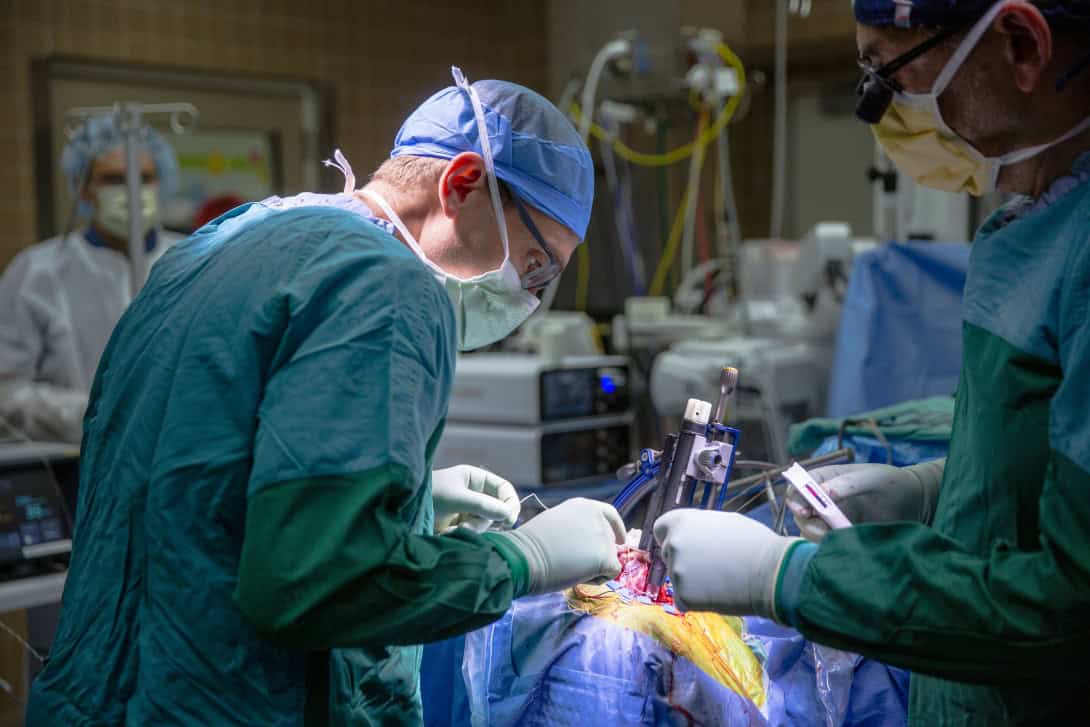A U-M research team completed the first in-human recording from a novel, wireless, fully implantable brain-computer interface (BCI). This technology aims to restore essential functions lost due to injury or disease.
The device, called the Connexus Brain-Computer Interface by Paradromics Inc., was temporarily implanted into a research participant by Matthew Willsey, M.D., Ph.D., neurosurgeon and biomedical engineer at U-M, with Oren Sagher, M.D., director of functional neurosurgery at U-M Health, with research support from a multidisciplinary team of clinicians and engineers, including Ph.Ds. Joseph Costello and Matthew Mender, Postdoctoral Engineering Research Fellows, Enrico Opri, Ph.D., Assistant Professor, Biomedical Engineering, and William Stacey, MD, Ph.D., Professor, Neurology and Biomedical Engineering.
This brain-computer interface (BCI), which is about the size of a penny and contains 421 microelectrodes, each thinner than a human hair, recorded signals from the participant’s brain. The BCI was briefly implanted during a temporal lobectomy, a procedure to remove part of the brain that causes seizures for a person with epilepsy.
“This was a tremendous achievement to be able to implant for the first time this BCI, one with over four times the number of sensors compared to similar technology that we have used in the past,” Dr. Willsey said.
“Devices such as this may one day restore function to people with speech and motor disabilities.,” he added. “With this technology, we can record information from the brain in a way that we haven’t been able to before.” The device is designed to translate neural signals into synthesized speech, text, and control computers.
Researchers plan to use the data recorded by the Connexus BCI to better understand how epilepsy influences brain signaling. The data collection may also be used to work toward BCI clinical trials. This procedure occurred recently at the University of Michigan and was conducted in a person who was undergoing brain surgery to treat their epilepsy.
“Having a close relative who experienced a gradual loss of speech and mobility continues to inspire my BCI research every day,” said Joseph Costello, a postdoctoral engineering research fellow in the Willsey Lab. “We’re now at an exciting point where technologies like this could soon help individuals regain independence and substantially improve their quality of life.”
Please visit the Michigan Medicine website or watch the video for additional details on this groundbreaking procedure.
Dr. Willsey is recruiting postdoctoral fellows in BME and EECS who are interested in pursuing research in this area. If you are a recent Ph.D. graduate or will be completing your Ph.D. soon, and are interested in this opportunity, please send your CV and contact information to [email protected]. For more information about the lab and current research, visit the website at https://www.willseylab.org/.
